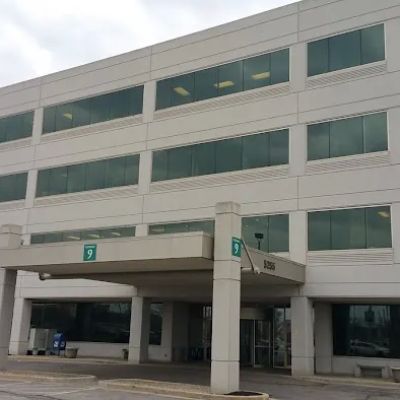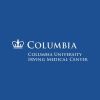- Understanding Heart Disease and Its Link to Blood Pressure
- Effective Strategies for Managing High Blood Pressure
- Real-Life Examples Highlighting the Importance of Blood Pressure Control
- Professional Advice and Resources for Cardiovascular Health
Understanding Heart Disease and Its Link to Blood Pressure
Heart disease remains one of the leading causes of death worldwide, and a primary factor contributing to this condition is uncontrolled high blood pressure, or hypertension. High blood pressure forces the heart to work harder than normal, which over time damages arteries and organs, leading to complications such as heart attacks, strokes, and chronic heart failure.
To grasp why managing high blood pressure is crucial, it helps to understand how elevated pressure impacts cardiovascular health. Persistent hypertension causes thickening and narrowing of the arterial walls, which restricts blood flow and reduces oxygen delivery to the heart muscle. This creates a vicious cycle, increasing the risk of heart disease significantly.
Moreover, many people with high blood pressure do not experience symptoms, which makes regular monitoring vital. Undetected or poorly managed hypertension silently contributes to progressive heart damage, highlighting the importance of both awareness and proactive control.

How Blood Pressure Affects the Heart
The heart’s left ventricle works overtime to pump blood against increased resistance caused by hypertension. This extra workload causes the heart muscle to thicken and become less efficient, a condition known as left ventricular hypertrophy, which increases the risk of arrhythmias and sudden cardiac events.
In addition to direct heart damage, high blood pressure accelerates the buildup of plaques in the arteries (atherosclerosis), further narrowing the vessels and increasing the risk of coronary artery disease.
Atlanta Heart Specialists
atlanta heart specialists
4375 Johns Creek Pkwy #350, Suwanee, GA 30024, USA

Effective Strategies for Managing High Blood Pressure
Managing high blood pressure effectively requires a combination of lifestyle changes, medication adherence, and regular health checkups. Below, we delve into proven strategies that can significantly reduce hypertension and, consequently, the risk of heart disease.
1. Lifestyle Modifications
One of the most impactful ways to control high blood pressure is through sustainable lifestyle changes:
- Dietary Adjustments: Emphasizing a diet rich in fruits, vegetables, whole grains, and lean proteins while limiting sodium intake helps reduce blood pressure. The DASH (Dietary Approaches to Stop Hypertension) diet is a well-researched plan that supports cardiovascular health.
- Regular Physical Activity: Engaging in at least 150 minutes of moderate exercise weekly, such as brisk walking or swimming, strengthens the heart and helps lower blood pressure.
- Weight Management: Excess weight raises blood pressure, so losing even a small percentage of body weight can make a substantial difference.
- Stress Reduction: Chronic stress can increase blood pressure; techniques such as mindfulness meditation, yoga, and adequate sleep support overall cardiovascular wellness.
2. Medication and Monitoring
For many, lifestyle changes alone may not be enough, making prescribed medications essential. Common antihypertensive drugs include diuretics, ACE inhibitors, beta-blockers, and calcium channel blockers. Consistent medication adherence is critical to prevent complications.
Regular home monitoring or clinical assessments allow for timely adjustments to treatment plans, ensuring blood pressure stays within target ranges.
3. Building a Support System
Managing high blood pressure is easier with encouragement from family, friends, or health professionals. Communities or online groups focused on cardiovascular health can offer motivation, share experiences, and provide practical tips.
Real-Life Examples Highlighting the Importance of Blood Pressure Control
Consider the story of Mark, a 52-year-old software engineer diagnosed with high blood pressure during a routine checkup. Initially asymptomatic, Mark ignored the diagnosis until he experienced chest discomfort and fatigue. After an emergency hospitalization for a minor heart attack, Mark committed to comprehensive blood pressure management—diet, exercise, medication, and regular follow-ups.
Within a year, Mark’s blood pressure stabilized, and he regained his energy and confidence. His story illustrates the silent dangers of untreated hypertension and the transformative power of proactive management.
Another example is the widely publicized case of a public figure whose struggle with uncontrolled blood pressure led to severe cardiovascular complications, sparking widespread awareness campaigns about the necessity of hypertension control.
Professional Advice and Resources for Cardiovascular Health
Experts emphasize early detection and ongoing management of high blood pressure as critical steps to prevent heart disease. Regular screenings, especially for individuals with family history or lifestyle risk factors, are recommended.
For those seeking tailored solutions, HeartCare Hub offers personalized recommendations for products, services, and support tailored to managing blood pressure and protecting heart health. From blood pressure monitors to nutritional supplements and access to specialized clinics, HeartCare Hub can connect users with trusted resources that meet their individual needs.
Furthermore, keeping informed through credible sources and consulting healthcare professionals regularly ensures that hypertension management adapts to changing health circumstances.






















Deborah Heart and Lung Center
deborah heart and lung center
200 Trenton Rd, Browns Mills, NJ 08015, USA